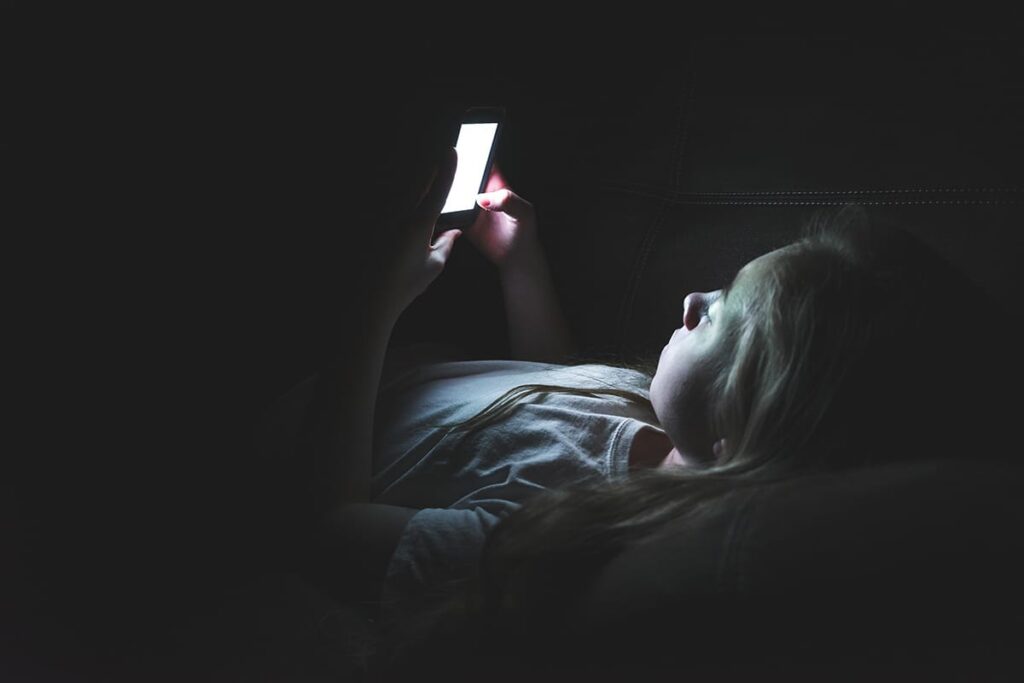Getting enough sleep is essential for teens, so it’s important to pay attention to any signs of the effects of sleep deprivation and take action if needed. Following a regular bedtime routine, avoiding screens before bed, and getting some exercise during the day are all steps that can help teens improve their quality of sleep. But when sleep deprivation becomes chronic and has lasting negative effects, it may be time for intervention and getting to the root cause of the issue.
Imagine Nampa offers an adolescent intensive outpatient program for young adults aged 12-17 struggling with mental health. Contact us today at 888.503.4604 or online for more information.
What Is Sleep Deprivation?
Sleep deprivation is a serious issue that affects teens all around the world. Not getting enough good-quality sleep can lead to serious physical and mental health problems, as well as poor performance in school or other activities. So what causes this in teens?
Causes of Sleep Deprivation in Teens
When it comes to the causes of sleep deprivation in teens, there are many factors that come into play. Here are some of the most common:
- Stress – With so much going on in a teen’s life, from school to after-school activities and social pressures, it can be easy for stress levels to get out of hand. This can lead to difficulty sleeping and result in sleep deprivation over time.
- Too much technology – Teens today have access to more technology than ever before, and this can make it hard for them to disconnect from their devices. Spending too much time on screens can disrupt the natural sleep cycle, leading to difficulty sleeping and, ultimately, sleep deprivation.
- Poor sleep habits – Even if teens have good intentions when it comes to getting enough sleep, bad habits like going to bed late, skipping naps, or not getting enough exercise can lead to sleep deprivation. It’s important for teens to develop good sleep habits that will help them get the rest they need each night.
- Unaddressed mental health issues – Mental health conditions such as anxiety, depression, or trauma can cause sleep disturbances and insomnia in teens and adults.
These are just some of the potential causes of sleep deprivation in teens. By understanding what may be causing it and addressing those issues, teens can work to get the restful sleep they need.
5 Negative Effects of Sleep Deprivation on a Teen’s Brain
As teenagers reach the ages of 13 to 19, they begin to experience increased academic pressure and extracurricular activities that can lead them to suffer from sleep deprivation. Unfortunately, this lack of sufficient sleep comes with a range of negative consequences for their bodies and brains. The following are just some of the detrimental effects that may occur when teens do not get enough sleep.
1. Diminished Mental Performance and Concentration
Without quality sleep, teens may find it difficult to concentrate or focus on their studies. Their brains may not be able to process information as quickly or effectively as if they were well-rested. This can lead to a decrease in academic performance, especially in important cases like exams and midterms. These consequences of sleep deprivation among students can derail plans and goals for the long term.
2. Impaired Memory
Teens who do not get enough sleep are likely to suffer from memory lapses or forgetfulness. Without proper rest, the brain’s ability to recall and store information is significantly hindered, making it harder for teens to learn new topics or retain existing knowledge.
3. Reduced Social Skills
The behavioral effects of sleep deprivation can also lead to a decline in teens’ social skills. Without enough sleep, they may find it more difficult to interact with peers in positive ways or be able to handle conflicts calmly. This lack of socializing can further contribute to feelings of loneliness and isolation.
4. Greater Risk for Depression
Teens who do not get adequate rest are more prone to developing depressive symptoms. This is because sleep helps regulate hormones that maintain good mental health. A lack of sleep can cause these hormones to become imbalanced, thus leading to an increased risk of depression or other mood disorders.
5. Reduced Physical Health
Lastly, teens who do not get enough sleep may experience a decrease in physical health. They may find it harder to stay active and have more difficulty recovering from injuries or strenuous physical activity. Moreover, they could be at a higher risk for developing certain illnesses due to their weakened immune system. The effects of sleep deprivation on physical health should not be understated.
By ensuring their teens get enough sleep, parents can help protect them against any potential negative effects on their health and well-being. They can do this by helping set an appropriate bedtime routine and removing distractions such as electronic devices from their bedrooms. Additionally, they should provide a calming environment in their teens’ bedrooms to help them relax and rest better. Through these small changes, parents can give their teens the gift of health that comes with a good night’s sleep.
The importance of sleep cannot be overstated, especially for teenagers, as they go through crucial periods of physical and mental development. With adequate rest, not only can teens perform better in school, but they can also lead healthier and happier lives. If chronic sleep deprivation is having negative effects on your teen, it is important to reach out for professional help.
Learn More About Imagine Nampa’s Adolescent Intensive Outpatient Program Today
By helping teenagers establish a healthy sleep schedule, they will be able to reap all the benefits that come with proper restful nights. This includes improved focus and concentration in school, higher motivation and productivity levels, and an overall healthier lifestyle. Getting to the root cause of the issue with professional intervention can also be highly beneficial. With the right guidance, teens can set the foundation for achieving quality sleep each night and avoid the negative effects of sleep deprivation on their brains. Contact Imagine Nampa at 888.503.4604 or online today to learn how we can help.




